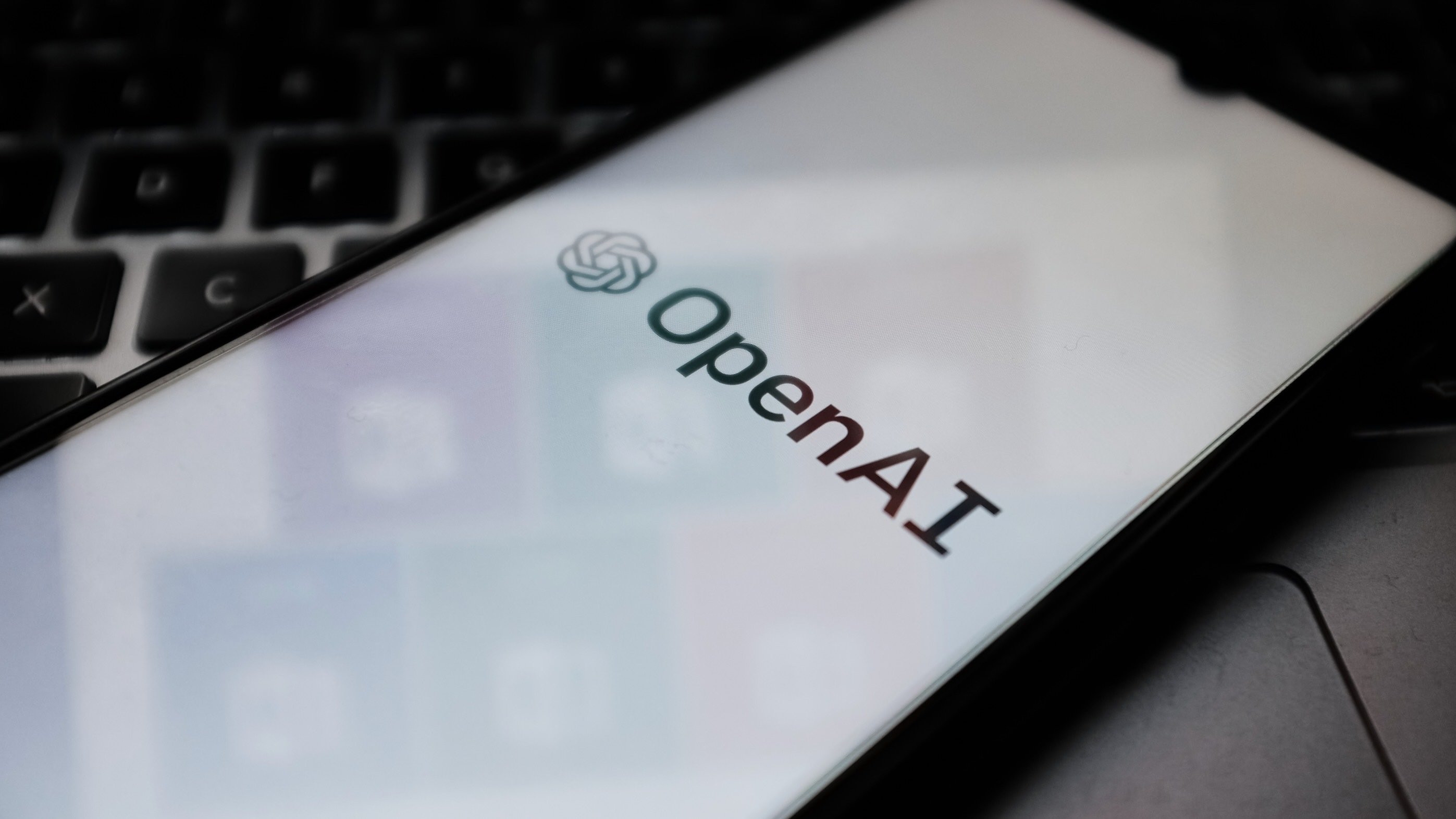FTC Probe Into OpenAI: A Deep Dive Into ChatGPT's Regulatory Future

Table of Contents
The FTC's Concerns Regarding ChatGPT and Data Privacy
The FTC's investigation likely centers on whether ChatGPT's data collection and use practices violate consumer protection laws. This raises significant concerns about the responsible use of AI and its impact on individuals.
Unfair or Deceptive Practices
The FTC's primary concern revolves around potential unfair or deceptive practices related to ChatGPT's operation. This includes:
-
Concerns about the collection and use of personal data for training the model: ChatGPT's training relies on vast datasets, raising questions about the informed consent of individuals whose data is used. The FTC will likely investigate whether OpenAI obtained proper consent and whether the data usage aligns with user expectations. This includes scrutiny of data anonymization techniques and their effectiveness.
-
Potential for the dissemination of false or misleading information generated by the AI: ChatGPT, like other LLMs, can sometimes generate inaccurate or biased information. The FTC is likely examining whether OpenAI has taken sufficient steps to mitigate the risks of disseminating false or misleading content, potentially impacting consumer decisions or public perception. The challenge lies in balancing the creative potential of AI with the need for accuracy and truthfulness.
-
Lack of transparency regarding data usage and algorithmic processes: The "black box" nature of many AI systems raises concerns about accountability and transparency. The FTC will likely investigate whether OpenAI provides sufficient information to users about how their data is used and the underlying algorithms driving ChatGPT's responses. This lack of transparency makes it difficult for users to understand and challenge AI-generated outputs.
Compliance with Existing Privacy Regulations
The FTC will assess OpenAI's compliance with existing regulations, including:
-
COPPA (Children's Online Privacy Protection Act): The use of children's data in training AI models is a significant concern. The FTC will investigate whether OpenAI has complied with COPPA's requirements regarding the collection, use, and disclosure of children's personal information.
-
CCPA (California Consumer Privacy Act): California residents have specific rights regarding their personal data. The FTC will examine OpenAI's compliance with CCPA, including users' rights to access, delete, and correct their data.
-
Data security measures: The FTC will scrutinize OpenAI's data security protocols to ensure they are robust enough to prevent breaches and unauthorized access to user data.
-
Data retention policies and user consent mechanisms: The FTC will assess whether OpenAI's data retention policies are reasonable and whether users are provided with clear and meaningful consent options regarding data collection and use.
Legal Challenges and Potential Outcomes of the FTC Investigation
The FTC investigation presents significant legal challenges, particularly in defining liability and setting precedents for future AI regulation.
Defining AI Liability
A central challenge is determining legal liability for AI-generated content. Several questions arise:
-
Who is responsible if ChatGPT produces defamatory statements or inaccurate information? Is it OpenAI as the developer, the user who prompted the AI, or both? This lack of clarity in legal frameworks poses a significant hurdle.
-
Exploration of potential legal frameworks: The investigation may lead to the development of new legal frameworks specifically designed to address the unique challenges posed by AI. This could involve clarifying existing laws or creating entirely new regulations.
-
Limitations of current legal systems: Current legal systems were not designed to handle the complexities of AI. The investigation highlights the need for adapting legal frameworks to accommodate the capabilities and potential risks of AI technologies.
Setting Precedents for Future AI Regulation
The FTC's actions will set a precedent for the regulation of AI companies globally.
-
Potential future regulations: The outcome could influence the development of regulations targeting AI bias, transparency, and accountability. This could involve mandates for algorithmic audits, impact assessments, and data privacy safeguards.
-
Impact on innovation: The investigation raises concerns about the potential chilling effect on AI innovation. Striking a balance between fostering innovation and ensuring responsible AI development is crucial.
-
Responsible AI practices: The investigation underscores the need for incorporating ethical guidelines and regulatory compliance into the AI development lifecycle from the outset.
The Future of ChatGPT and AI Regulation
The FTC probe highlights the critical need for responsible AI development, emphasizing ethical considerations, transparency, and user privacy.
The Need for Responsible AI Development
Moving forward, responsible AI development must prioritize:
-
Best practices for data handling: This involves ensuring data is collected and used ethically, transparently, and with informed consent.
-
Algorithmic transparency: Making AI decision-making processes more understandable and accountable is crucial for building trust and mitigating bias.
-
Bias mitigation: Addressing biases in AI algorithms is vital for ensuring fairness and equity in AI applications.
Balancing Innovation and Regulation
Finding a balance between fostering innovation and implementing effective regulations is paramount:
-
Regulatory approaches: Different approaches, including self-regulation, industry standards, and government oversight, need to be considered and evaluated for their effectiveness.
-
International cooperation: Establishing global AI standards through international cooperation is vital to ensure consistent and effective regulation across borders.
Conclusion:
The FTC's investigation into OpenAI and ChatGPT underscores the urgent need for a robust regulatory framework for artificial intelligence. The outcome of this probe will significantly shape the future of AI development and deployment, influencing how companies design, develop, and deploy AI systems, especially large language models like ChatGPT. Understanding the implications of this investigation is crucial for businesses, developers, and consumers alike. Stay informed about the evolving landscape of AI regulation and continue to monitor the FTC's probe into OpenAI and ChatGPT for crucial updates. Further research into ChatGPT regulation and FTC AI investigations is strongly recommended.

Featured Posts
-
 Bollywoods Biggest Flop Salman Khans R2 Crore Movie And Its Aftermath
May 13, 2025
Bollywoods Biggest Flop Salman Khans R2 Crore Movie And Its Aftermath
May 13, 2025 -
 Betting On The Nba Draft Lottery Analyzing Toronto Raptors And Cooper Flagg
May 13, 2025
Betting On The Nba Draft Lottery Analyzing Toronto Raptors And Cooper Flagg
May 13, 2025 -
 Gov Abbotts Intervention Texas Rangers Investigate Plano Islamic Center Project
May 13, 2025
Gov Abbotts Intervention Texas Rangers Investigate Plano Islamic Center Project
May 13, 2025 -
 Cassie Confirms Third Childs Gender A Birthday Surprise For Alex Fine
May 13, 2025
Cassie Confirms Third Childs Gender A Birthday Surprise For Alex Fine
May 13, 2025 -
 Halal Slaughter A Vegan Perspective On Ethical Concerns
May 13, 2025
Halal Slaughter A Vegan Perspective On Ethical Concerns
May 13, 2025
